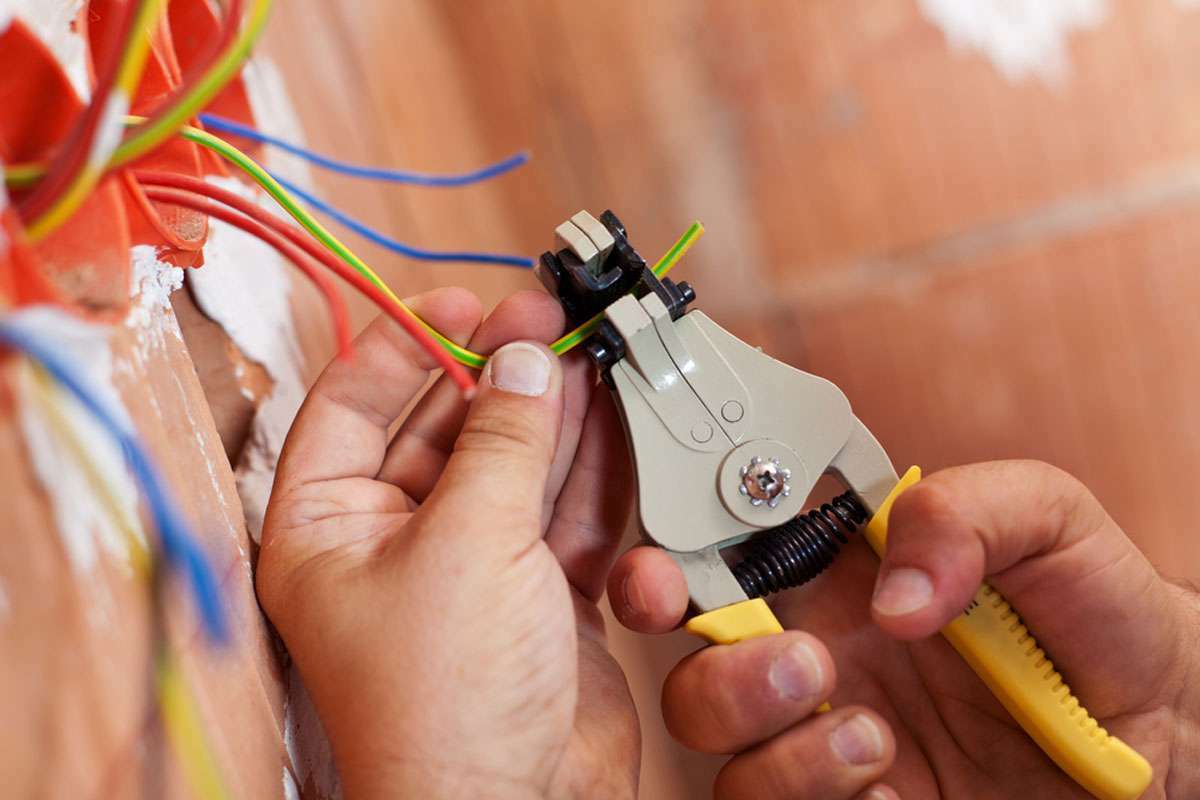Effective drainage solutions prevent flooding, protect foundations, and ensure long-term safety.
Flexible Home Electrical Work
In today’s fast-paced world, our homes rely heavily on electricity to power appliances, lighting, and smart technologies. With evolving lifestyles and increasing demand for convenience, flexible home electrical work has become more important than ever. It allows homeowners to enjoy safe, adaptable, and future-ready electrical solutions tailored to their needs.
What Is Flexible Home Electrical Work?
Flexible electrical work is about designing adaptable and efficient electrical systems for homes.
Unlike rigid setups, flexible electrical installations are planned with foresight, ensuring that your home can easily accommodate changes—whether it’s adding new appliances, upgrading lighting systems, or integrating smart home devices.
Why Flexibility in Electrical Work Matters
Flexibility ensures convenience, safety, and cost-effectiveness in the long run.
Traditional electrical setups often limit how you use power outlets, lighting, and circuits. A flexible approach ensures that your home can adjust to lifestyle changes, new technologies, or renovations without requiring complete rewiring.
Key Benefits of Flexible Home Electrical Work
Flexible electrical planning offers multiple advantages to modern households.
1. Adaptability to Lifestyle Changes
Families grow, needs change, and electrical systems must keep up.
Whether it’s setting up a home office, adding kitchen gadgets, or creating an entertainment zone, a flexible electrical plan ensures enough outlets, circuits, and load capacity to adapt to evolving requirements.
2. Improved Safety
Proper planning reduces risks of overloads and short circuits.
By spreading electrical loads evenly and planning for future expansion, flexible setups help prevent overheating, tripping, and fire hazards.
3. Energy Efficiency
Smart and flexible wiring supports modern energy-saving solutions.
With proper placement of switches, sensors, and energy-efficient lighting systems, homeowners can reduce wastage and cut down on electricity bills.
4. Cost Savings in the Long Term
Flexibility prevents the need for repeated major rewiring projects.
Instead of tearing down walls for every upgrade, a flexible system makes small adjustments easier and more affordable.
Common Areas for Flexible Electrical Upgrades
Certain areas of the home benefit greatly from adaptable electrical solutions.
Kitchen and Dining Areas
Modern kitchens require multiple outlets for high-power appliances.
A flexible plan allows homeowners to add new appliances without overloading existing circuits, while smart lighting enhances functionality and mood.
Living Rooms and Entertainment Zones
Entertainment systems demand well-planned wiring.
Flexible wiring setups prevent messy extensions by providing sufficient outlets for TVs, sound systems, and gaming consoles.
Bedrooms and Home Offices
Smart switches and USB-integrated outlets improve convenience.
Flexible wiring ensures bedrooms and offices can accommodate extra gadgets, chargers, and work-from-home setups with ease.
Outdoor and Garden Areas
Flexible planning supports outdoor living and safety.
Weatherproof outlets, garden lighting, and security cameras can all be seamlessly integrated into the home’s electrical system.
Modern Trends in Flexible Electrical Work
Technology is reshaping how homeowners approach electrical installations.
Smart Home Integration
Flexible wiring allows seamless adoption of smart home devices.
From voice-controlled lights to automated blinds, smart devices require compatible setups that flexible electrical work can easily support.
Modular Wiring Systems
Modular systems make electrical work quicker and more adaptable.
These systems allow easy replacement or expansion of outlets, switches, and wiring without major disruption.
Renewable Energy Readiness
Homes are increasingly integrating solar panels and battery backups.
A flexible electrical design ensures smooth connection between renewable systems and the main grid, preparing homes for a sustainable future.
DIY vs. Professional Flexible Electrical Work
While DIY may seem cost-effective, professional expertise ensures safety and compliance.
Why Avoid DIY for Electrical Work
Electrical errors can be dangerous and costly.
Improper connections, overloading, or faulty installations can result in electrical fires, shocks, and expensive repairs.
Benefits of Hiring Professionals
Certified electricians bring safety, compliance, and reliability.
They ensure wiring meets building codes, provide warranty on work, and design systems that accommodate both present and future needs.
Conclusion
Flexible home electrical work is no longer a luxury—it’s a necessity for modern living.
By ensuring adaptability, safety, and efficiency, flexible electrical planning prepares your home for current demands and future innovations. Whether you’re renovating, building a new home, or upgrading existing systems, investing in flexible electrical solutions will keep your household powered, safe, and future-ready.
Related Posts
Proper installation prevents leaks, odors, and damage while ensuring safe bathroom use.



